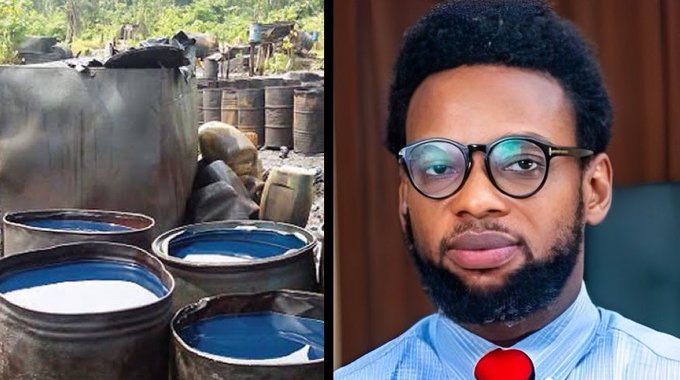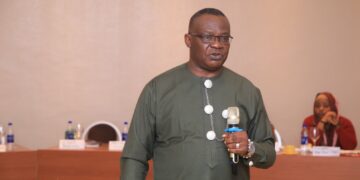Founder of the Foundation for Investigative Journalism (FIJ), Fisayo Soyombo, has accused the Nigerian Army of deliberately blowing his cover as an Investigative Journalist exposing crude oil thiefs in the Niger Delta region, thereby compromising his personal security.
He also said that illegal oil bunkering in Nigeria persists due to the complicity of security agencies.
Soyombo made the disclosures during an interview on Arise News Channel’s breakfast programme, ‘The Morning Show’ on Saturday, which was monitored by our Correspondent.
He expressed deep concern about his personal safety, stating that the Nigerian Army had jeopardised his security by linking him to oil bunkering in an official statement to justify his arrest while on investigative assignment at an illegal oil bunkering site in Rivers State.
“This is the first time I have genuinely felt my security compromised,” he said. “I believe the spokesman of the Nigerian Army deliberately compromised my security by releasing that statement and linking me to oil bunkers. FIJ announced that I was in detention and made no mention of oil bunkering, but now they’ve gone to tell illegal bunkers, ‘Look, this guy is on your trail’.”
He buttressed, “My utmost concern is that my security has been compromised by the Nigerian Army, which should be interested in curbing illegal oil bunkering. Instead, they should have seen me as a partner.”
According to Soyombo, who was released from detention on Friday evening after being held incommunicado for three days by the 6 Division, Nigerian Army in Port Harcourt, Rivers State, the military’s approach to tackling oil bunkering was being undermined by internal complicity.
“Some of the senior Army officials were saying, ‘President Bola Tinubu has said no to bunkering. You people think it’s a joke. It will not end because the illegal bunkers have collaborators in security formations—not one, not two, not three’,” he revealed.
Soyombo also criticised the Army for detaining him without access to legal representation. He alleged that soldiers were instructed to deny him access to his mobine phones.
“I repeatedly asked them, ‘Look, I need to speak to my lawyer. I did not commit murder. Let’s even say I’m an illegal oil bunker; I should still be able to contact my lawyer.’ But they denied me that right,” he said.
He noted that if his detention had not been widely reported in the media, he might have been held indefinitely. “If not for the plans I had made before embarking on the story, my organisation (FIJ) would not have known my location. That technology enabled my release. Otherwise, I could still be in detention—even for two months.”
Soyombo disclosed that the Army’s attitude toward him changed after realising he was an investigative journalist.
“By Wednesday night, they had become calmer. They were initially hostile, thinking I was a criminal. But when they found out who I was, they became relaxed. They even took me to the house of the commander of the anti-bunkering unit. I sat down, we talked, they gave me food, and I watched the Liverpool/Real Madrid Champions League game. I’m a Liverpool fan, so I watched a good part of it in the commander’s house,” Soyombo recounted.
Despite this shift in treatment, Soyombo questioned why he was still detained. “Why did they keep me? Who were the interests they thought would be in trouble if I got out? The Army spokesman, Col. Danjuma, needs to explain to Nigerians why I was detained even after they confirmed I was not a criminal.”
When asked why he maintains relationships with oil bunkers despite exposing their illegal activities, Soyombo said, “For my security.”
Soyombo concluded by calling on the Army to clarify its actions and take responsibility for his wrongful detention. He emphasised that journalists must not be silenced for uncovering the truth. “That (Army) spokesman, Col. Danjuma has to issue another statement and explain to Nigerians why the things I said in my statement got out before me and why they kept me for that long,” he added.





